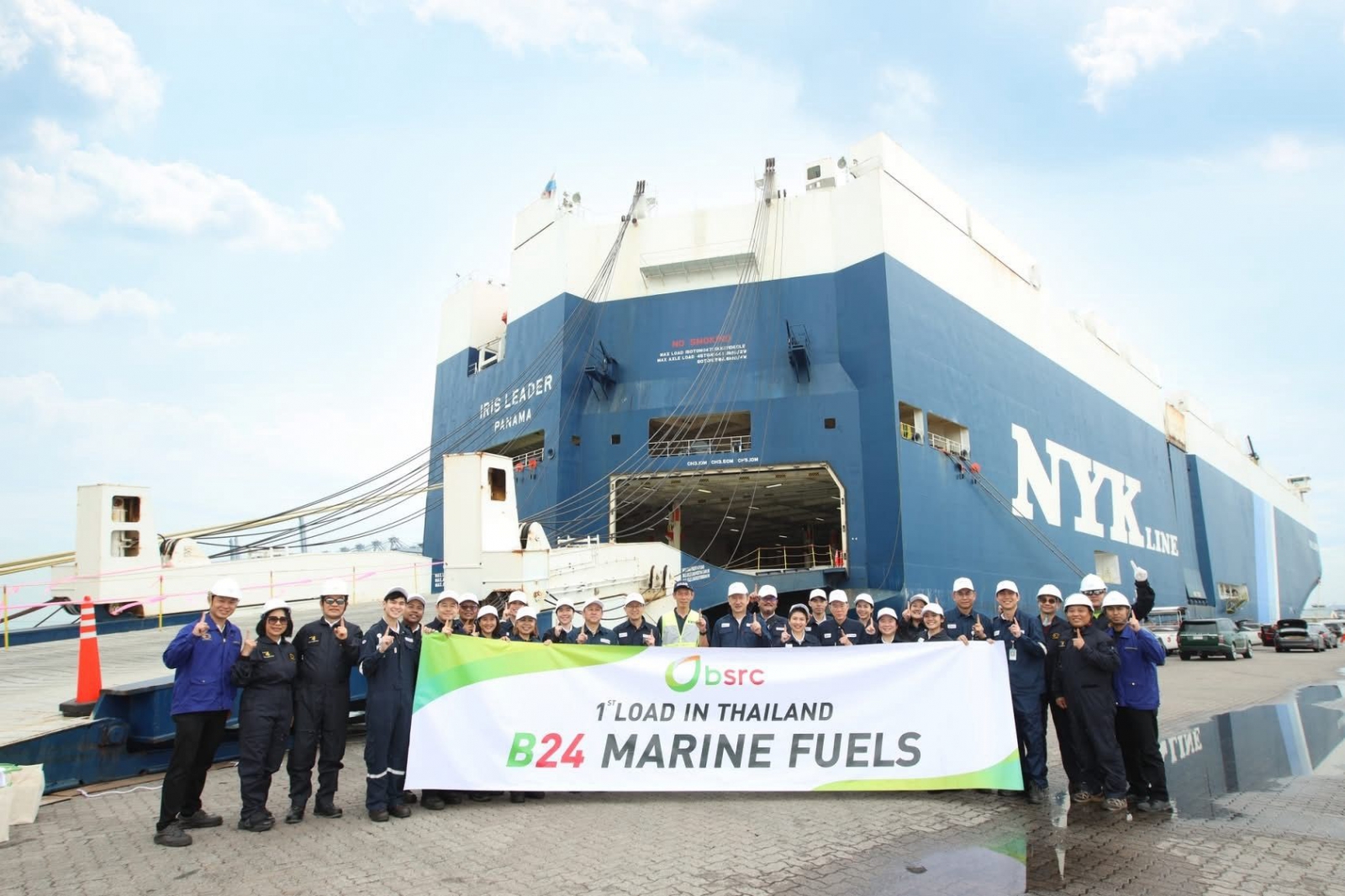
Bangchak has completed its first B24 biofuel delivery to NYK Line. (Photo: Bangchak Sriracha)
Thailand’s leading energy players are ramping up investment in renewable energy in response to growing momentum for maritime decarbonization. Companies like Bangchak Corporation and state-owned PTT are accelerating the development of biofuels.
The country’s abundant biomass potential has also attracted foreign investment. China’s biodiesel producer Zhuoyue New Energy recently announced a plan to build a facility in Thailand, with an investment of 700 million RMB (about USD 97.5 million).
Maritime biofuel demand spurs early-stage deployment
According to the marine fuel publication Ship & Bunker, to meet the International Maritime Organization (IMO)’s decarbonization goals, the shipping industry will need to blend 17.6% to 23.3% biofuel into its fuel mix by 2028 to avoid penalties. The magazine expects these international mandates to directly drive demand for bio-based fuels.
In June, PTT’s Oil and Retail Business (OR) signed a Memorandum of Understanding with Regional Container Lines (RCL), under which RCL will adopt Bio-VLSFO (bio-based Very Low Sulfur Fuel Oil) supplied by OR.
Bio-VLSFO is produced by blending biodiesel derived from used cooking oil. According to TotalEnergies, a 10% bio-blended oil can reduce greenhouse gas emissions by up to 10%.
Bangchak Corporation, through its Sriracha Refinery, has begun producing Bio-VLSFO using UCOME (Used Cooking Oil Methyl Ester), which makes up 24% of its blend, marketed as B24. The first delivery was completed in February this year. The company emphasized that B24 is a drop-in replacement for fossil marine fuels, requiring no retrofitting of ships or refueling infrastructure.
(1).jpg)
To meet IMO decarbonization targets, the shipping industry must blend 17.6% to 23.3% biofuel into its fuel mix by 2028. (Image: Unsplash)
China’s Zhuoyue invests in Thailand, citing waste oil potential
Thailand’s Ministry of Energy is also backing the development of marine biofuels. Sarawut Kaewtathip, Director-General of the Department of Energy Business, acknowledged that while Bio-VLSFO is currently more expensive than conventional fuel oil, costs are expected to fall as production scales up.
The Thai government projects that the country’s transition to cleaner fuels, particularly sustainable aviation fuel (SAF), could attract over THB 114 billion (about USD 3.5 billion) in new investments.
In early July, China’s Zhuoyue New Energy announced a RMB 700 million investment to establish a biofuel production plant in Chon Buri province. The facility is expected to produce 300,000 tons of biodiesel, 100,000 tons of hydrotreated vegetable oil (HVO), and sustainable aviation fuel annually.
The company said its decision was driven by Thailand’s rich supply of waste oils and the rising global demand for bioenergy. Zhuoyue is also building a new plant in Singapore, set to begin biodiesel production this year, with an annual capacity of 1 million tons. Singapore’s position as a global bunkering hub makes it a strategic location with high demand for low-carbon fuels.
Source: Bangkok Post(1), (2), YiCai
.jpg)




